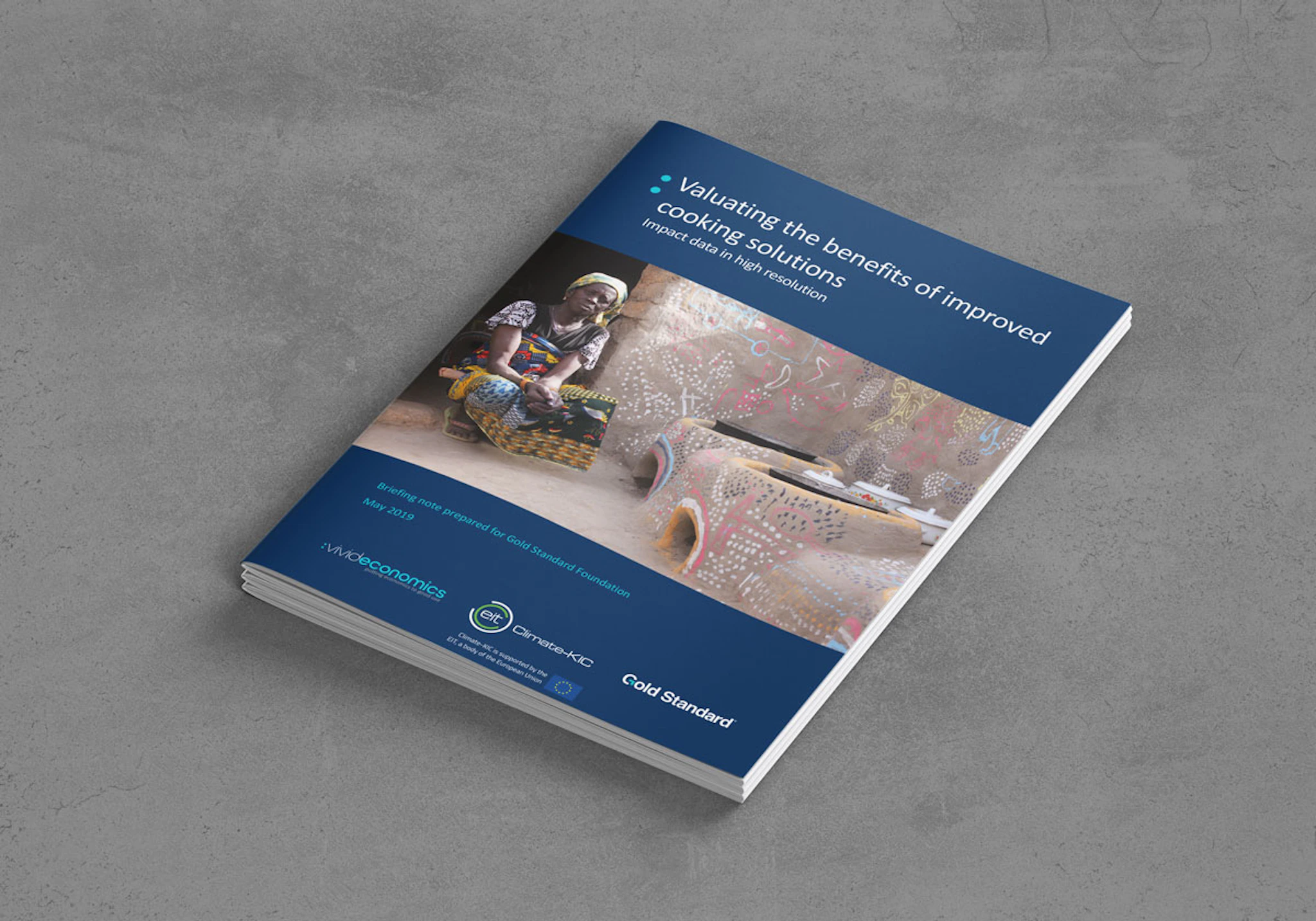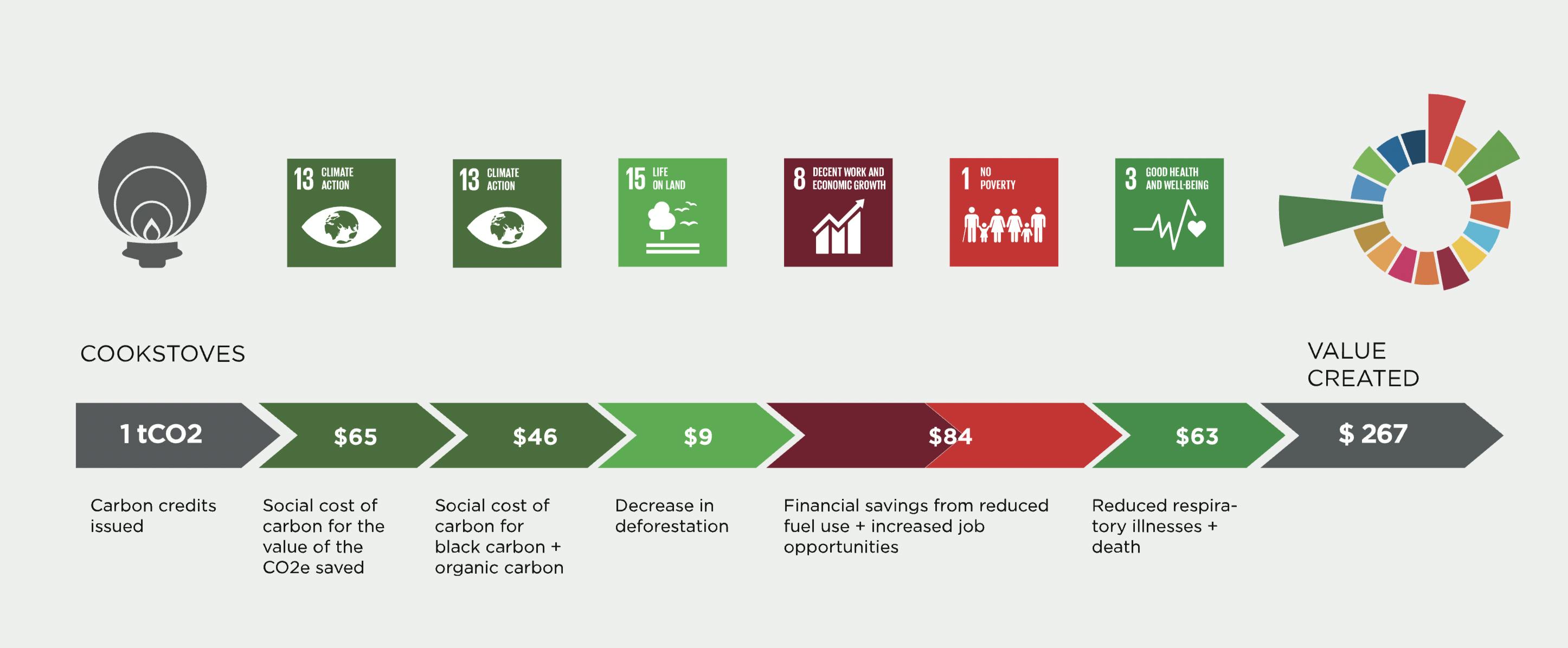Commissioned study with impact data in higher resolution shows greater impact value than previously estimated

Gold Standard has published a research study by Vivid Economics that estimates the economic value of Gold Standard-certified project benefits related to climate, health, ecosystem protection, economic opportunity, poverty reduction and other development outcomes from its improved cooking solutions project portfolio.
The study, supported by Climate KIC, finds that for every carbon credit issued from a clean cookstove project, $267 in economic value is created. For domestic biogas projects, the average value created is $465 per credit. The net benefit of Gold Standard's improved cooking solutions portfolio adds up to $2.6 billion per annum and, to date, $11.6 billion over total project lifetime.
Average value created per carbon credit issued from improved cooking solutions projects:


See project-level examples:
Hivos household biogas project in Kenya
Myanmar cookstoves campaign
These findings build on earlier work commissioned by Gold Standard that looked across additional project types. In comparison, this study takes a deep dive on improved cooking solutions and valuates a broader set development benefits. Researchers used updated primary data from all projects that have issued Gold Standard carbon credits, rather than project sampling in the previous report. The new study also features disaggregation per region and per technology-fuel combination across all impact channels and introduces additional improvements for greater specificity.
The report supports ongoing efforts to rapidly deploy best available cooking technologies at scale by providing a more complete picture of monetary benefits.
"Gold Standard's mantra 'Making good better' means that we continue to look for ways to tap into the latest data and research to make this impact concrete and meaningful for projects and their funders," comments Gold Standard CEO Marion Verles. "Vivid's research makes even clearer the value that investors create through supporting improved cooking solutions, helping to attract more capital to these transformational projects."
Building on this effort, Gold Standard plans to introduce a forward-looking impact evaluation tool for improved cooking solutions projects that can be used by project developers to understand which deployment locations and technologies might deliver the highest impact on the Sustainable Development Goals. The team is also focused on creating automated tools for impact reporting and data visualisation to help project developers more effectively communicate about their projects' impact. These tools will be released in due course.
